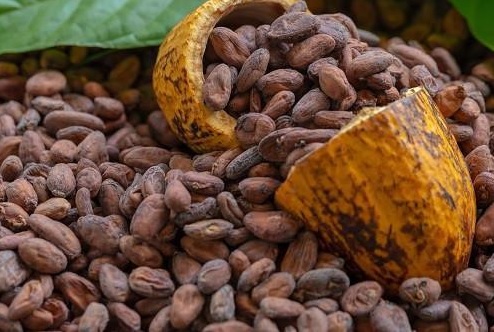Ghana and neighbouring Côte d’Ivoire are facing renewed pressure from the European Union and French development partners to fast-track long-delayed cocoa sector reforms, amid warnings that both countries risk losing competitiveness under emerging global sustainability standards.
The call was made during a two-day Cocoa4Future feedback workshop in Accra, where researchers presented findings from a five-year EU- and AFD-funded project examining agroforestry practices, disease control, certification schemes, farmer livelihoods, and climate resilience across the two major cocoa producers.
EU officials cautioned that unless agroforestry adoption accelerates, deforestation is reduced, and labour-related risks are addressed, West African cocoa could face increasing barriers under new European sustainability rules and stricter buyer requirements.
Research findings underscored multiple structural vulnerabilities and outlined pathways for reform.
Many farmers continue to prefer low- or no-shade cocoa production, which boosts short-term yields but undermines ecological resilience, long-term productivity, and forest recovery—leaving cocoa landscapes highly exposed to climate change.
On disease control, Cocoa Swollen Shoot Virus Disease (CSSVD) remains widespread, cutting yields by as much as 202 kg per hectare on heavily affected farms.
Farmer-led control methods, including pruning or chemical applications, have proven largely ineffective.
Researchers called for expanded rehabilitation programmes, increased production of CSSVD-resistant seedlings, and strengthened technical training for early detection and management.
Studies on certification revealed that Fairtrade and Organic schemes improve yields, incomes, and job creation, though their impact on food security and working conditions remains uneven.
To enhance benefits, researchers recommended strengthening cooperatives, expanding extension services, improving access to affordable credit, and diversifying markets for certified producers.
Across all research themes, the recommendations were clear: governments must scale up input distribution, clarify tree tenure rights, promote hybrid cocoa varieties, incentivise agroforestry, and formalise support systems for farmers—including pensions, credit, and access to modern equipment.
Development partners stressed that these evidence-based reforms are urgent, as global cocoa markets move decisively toward traceable, climate-resilient, and ethically sourced production—standards that Ghana and Côte d’Ivoire risk falling behind if sector reforms continue to stall.

